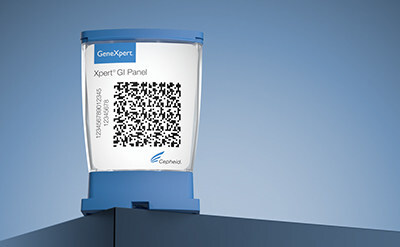Bayer has reported topline results from the global Phase III OCEANIC-STROKE trial evaluating the investigational Factor XIa inhibitor asundexian for secondary stroke prevention. The company said the study met its primary efficacy and safety endpoints, reducing the risk of ischemic stroke without increasing major bleeding when added to standard antiplatelet therapy.
Ischemic stroke occurs when a blood vessel supplying the brain becomes blocked, cutting off oxygen to brain tissue. It remains a major cause of death and long-term disability worldwide. Even with established treatment options, the risk of another stroke is high.
Asundexian is an oral, once-daily direct inhibitor of Factor XIa, a protein involved in the body’s clotting process.
Factor XIa contributes modestly to normal clotting that stops bleeding after injury, but plays a larger role in forming harmful clots that block blood vessels.
Factor XIa contributes modestly to normal clotting that stops bleeding after injury, but plays a larger role in forming harmful clots that block blood vessels.
Studies suggest that people with naturally lower factor XI levels tend to have fewer harmful clots and usually experience only mild bleeding, which has sparked interest in this pathway. Factor XI is the inactive precursor, while Factor XIa is the activated form that drives the clotting cascade, which is why current therapies are designed to block FXIa rather than FXI itself.
By selectively inhibiting Factor XIa, asundexian is designed to limit the growth of pathological clots while aiming to preserve normal hemostasis and reduce major bleeding risks associated with traditional anticoagulants.
Asundexian has a Fast Track designation from the FDA for reducing secondary stroke risk after a non-cardioembolic ischemic event and remains investigational.
OCEANIC-STROKE was a multicenter, randomized, placebo-controlled, double-blind, event-driven Phase III study enrolling more than 12,300 patients. Participants had recently experienced a non-cardioembolic ischemic stroke or a high-risk transient ischemic attack and were receiving background antiplatelet therapy.
The study evaluated whether asundexian 50 mg once daily could further reduce the risk of ischemic stroke compared with placebo under the same treatment conditions. The primary efficacy endpoint was reduction of ischemic stroke, and the primary safety endpoint was major bleeding as defined by the International Society on Thrombosis and Haemostasis.
Bayer reported that asundexian significantly reduced ischemic stroke risk and did not increase ISTH-defined major bleeding. Numerical results were not included in the topline announcement and are expected at the upcoming scientific presentation. According to the company, OCEANIC-STROKE is the first completed Phase III study of a Factor XIa inhibitor to report positive findings.
In the announcement, investigators underscored the ongoing need for safer secondary stroke prevention options. Christian Rommel, PhD, head of Research and Development at Bayer’s Pharmaceuticals Division, said the data highlight the potential role of Factor XIa inhibition in preventing recurrent stroke.
Bayer stated that no increase in major bleeding was observed in the asundexian arm compared with placebo, both used alongside antiplatelet therapy.
XTALKS WEBINAR: How Does Community-Based Research Deliver Faster Results and Greater Access?
Live and On-Demand: Thursday, January 22, 2026, at 12pm EST (6pm CET)
Register for this free webinar to learn how community-based research enhances access, representation and trial efficiency while supporting approaches that strengthen patient experience.
Asundexian is one of several agents targeting Factor XI or Factor XIa now in late-stage development.
Novartis is advancing abelacimab, a monoclonal antibody against Factor XI that the company reacquired in 2025 through its acquisition of Anthos Therapeutics, which originally held global development and commercialization rights.
Bristol Myers Squibb and Johnson & Johnson are also studying the oral Factor XIa inhibitor milvexian in the Librexia AF and Librexia STROKE Phase III programs, both of which are continuing as planned with data expected in 2026. A separate Phase III study of milvexian in acute coronary syndrome, Librexia ACS, was discontinued after an interim analysis indicated it was unlikely to meet its primary endpoint.
Bayer plans to engage with global health authorities in preparation for regulatory submissions. The company noted that these plans depend on the upcoming scientific presentation and subsequent regulatory review.
If you want your company to be featured on Xtalks.com, please email [email protected].













Join or login to leave a comment
JOIN LOGIN